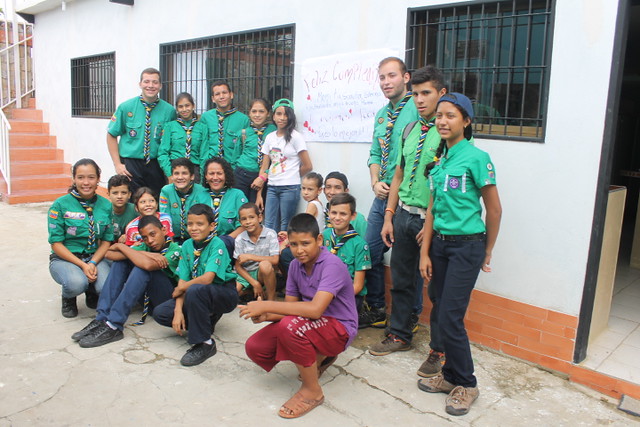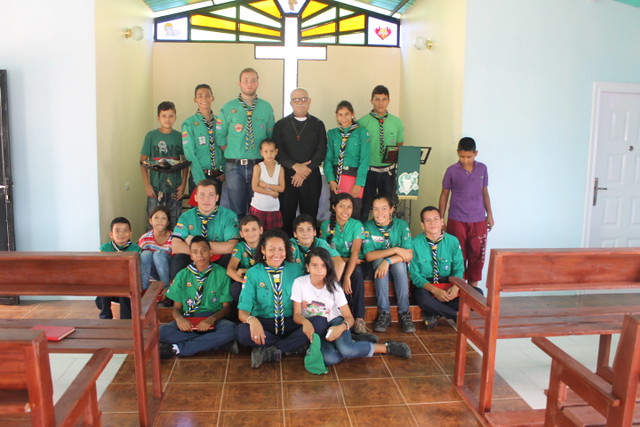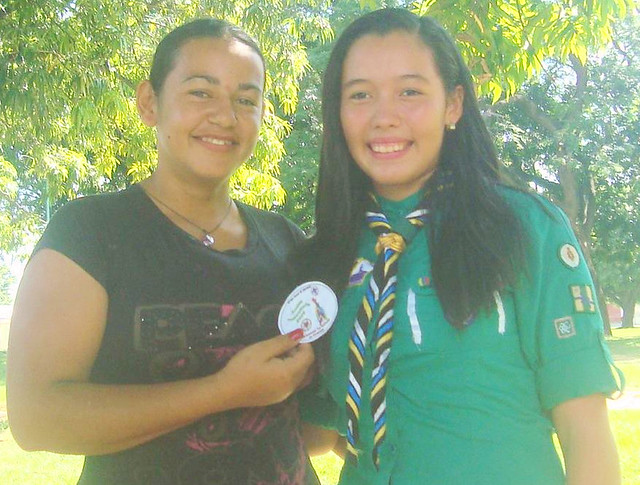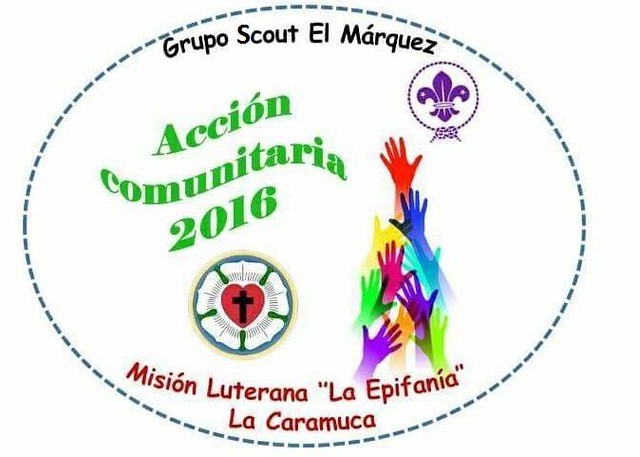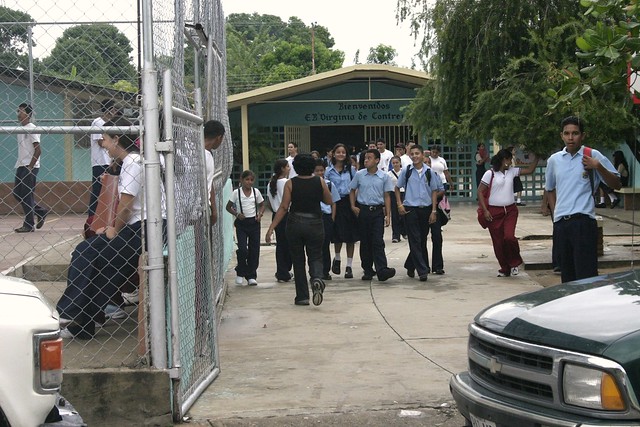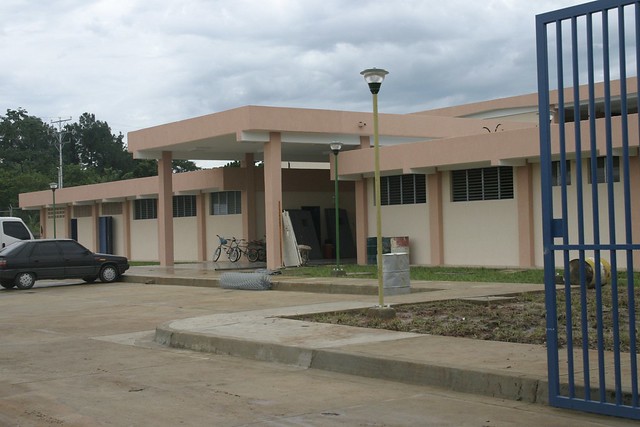I want to deliver a
requiem for the Scouts. But not the Scouts our North American friends
might think I mean and not for that reasons they might suppose.
For several years,
controversy has swirled around the organization formerly known as the
Boy Scouts of America (why do I hear “When Doves Cry” in the
background?). The most recent furor, of course, has been over the
decision to drop the “Boy” and allow young women to join the
Scouts of America. I think that the
prior decision to allow openly active homosexual men as Scout leaders
is more
challenging from a Christian perspective. Yet the
reaction to both decisions is to some extent based on a
misunderstanding of what the Scouting movement always has been, one
that I shared until I learned more firsthand about the worldwide
Scout movement
It began in 1908 in
the United Kingdom, based upon the ideas of Robert Stephenson Smyth
(1857–1941), 1st Baron Baden-Powell, and his best-selling book
“Scouting for Boys”. Today
there are Scouting organizations
active in 216 countries and territories, with a global membership of
over 31 million, male and female. Two thirds of the international
membership are in developing countries. The World
Organization
of Scout Movements (WOSM) is an international body that supports
Scouts across the world.
The program initially focused on boys aged 11 to 18, with an
emphasis on camping, hiking and other outdoor activities. However,
girls wanted to become part of the movement almost as soon as it
began. Although co-educational youth groups did exist at the time,
Baden-Powell and his sister, Agnes, thought it best to start a
parallel movement for girls, the Girl Scouts, in 1910. The Girl
Scouts USA association still exists, but is not without their own
share of controversy,due to ties with Planned Parenthood.
By the end of the
1990s, two-thirds of the Scout organizations belonging to WOSM had
become co-educational. That includes the Scouts
of Venezuela. The organization, which began with the Boy Scouts
Club of Maracaibo (Venezuela’s second-largest city) in 1913, opened
its membership to girls in 1997.
It is important to
understand that what’s now called “diversity” or
“inclusiveness” is in the DNA of the Scouting movement, and that
includes religion. The WOSM describes Scouting as "a voluntary
nonpolitical educational movement for young people open to all
without distinction of origin, race or creed, in accordance with the
purpose, principles and method conceived by the Founder
(Baden-Powell).”
But the Scouts are
not simply neutral in regard to religious faith. The “Scout
Promise” includes “duty to God.” The WOSM states the following
in its fundamental principles:
“Under the title
‘Duty to God’, the first of the above-mentioned principles of the
Scout Movement is defined as "adherence to spiritual principles,
loyalty to the religion that expresses them and acceptance of the
duties resulting therefrom". Note that, by contrast to the
title, the body of the text omits the word "God" to make
clear that the clause also covers non-monotheistic religions, such as
Hinduism, and those that do not recognize a personal God, such as
Buddhism.”
This is a
universalistic creed that promotes “spirituality” while treating
all bodies of belief as equal. But the Jesus Who speaks through the
Holy Scriptures makes truth claims that no founder of another world
religion makes. He claims to be the same God who in the Old Testament
said, “You shall have no other gods apart from Me.” He said of
Himself, “All things have been handed over to me by my Father, and
no one knows the Son except the Father, and no one knows the Father
except the Son and anyone to whom the Son chooses to reveal him.”
(Matthew 11:27); “For he whom God has sent utters the words of God,
for he gives the Spirit without measure. The Father loves the Son and
has given all things into his hand. Whoever believes in the Son has
eternal life; whoever does not obey the Son shall not see life, but
the wrath of God remains on him.” (John 34-37); “I am the way,
and the truth, and the life. No one comes to the Father except
through me.” (John 14:6).

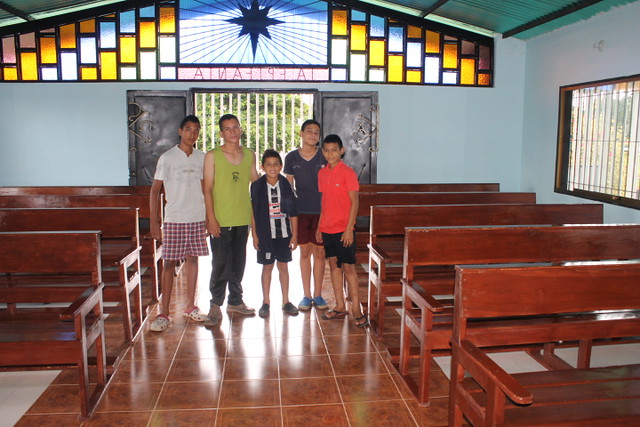 So, how did Boy
Scout troops become fixtures of Lutheran Church – Missouri Synod
congregations throughout the United States since 1944? By an
“understanding” with the national and international organizations
that churches that supported local troops would have be able to
require a stricter interpretation of what God is. Because it does not
affirm faith in Jesus as the only Savior from sin, the Scouts cannot
be considered an inherently Christian organization; but,until
recently, the Scouts did not require positive denial of Scriptural
teaching. It seemed participation in the Scouts reinforced moral
teachings consistent with the universal moral Law revealed in the
Bible.
So, how did Boy
Scout troops become fixtures of Lutheran Church – Missouri Synod
congregations throughout the United States since 1944? By an
“understanding” with the national and international organizations
that churches that supported local troops would have be able to
require a stricter interpretation of what God is. Because it does not
affirm faith in Jesus as the only Savior from sin, the Scouts cannot
be considered an inherently Christian organization; but,until
recently, the Scouts did not require positive denial of Scriptural
teaching. It seemed participation in the Scouts reinforced moral
teachings consistent with the universal moral Law revealed in the
Bible.
While
recognizing the religious element in the training of youth,
scouting refrains from giving religious training or even announcing a
program of such training but assigns to the church whatever spiritual
guidance and religious instruction the Scout is to receive. Whatever
Scouting has to say about religion refers to “civil righteousness”,
or character building and citizenship training.
Member congregations
of the Lutheran Church-Missouri Synod are
free to affiliate with any scouting organization, although the
national church body has advised them to be aware of possible
conflicts over world views and proceed with “prayerful caution.”
The Lutheran Church-Missouri Synod neither encourages or discourages
its members from being involved with Scouting.
In much the same
way, the Scouts gained the approval of the Roman Catholic Church in
Venezuela. The Venezuelan version of the Scout Promise reads as
follows:
Por mi honor y con
la gracia de Dios
me obligo a servir
lo mejor que pueda
a mi iglesia, a mi
patria, a ayudar a mi prójimo en cualquier circunstancia
y a cumplir la Ley
Scout
On my honor, and
with the grace of God
I oblige myself to
serve as best I can
my church, my
country, to help my neighbor in all circumstances
and to fulfill the
Scout Law.
All of this leads up
to my story of our two-year relationship with el Grupo Scout El
Marqués of Barinas. Luz Maria’s daughter, Yepci, became involved
with this group, with a view toward adapting some aspects of the
Scout program for church youth activities. Yepci’ s children,
Oriana and Elias, joined the Scouts as did neighboring youth in La
Caramuca. We hosted Scout campouts more than once.
The high point of
the relationship was when the Scouts sanded and refinished the pews
in our chapel. Another of Luz Maria’s daughters, Charli, designed a
merit badge for them for doing this. Unfortunately, our Scout troop
is no more, as the adult leaders, including Yepci and Charli, all
have left the country.
The Scouts provided
us with a wonderful opportunity to make new connections with people
in our surrounding community and give our youth healthy, productive
outlets for their energy. I am sad that we were not able to continue
this relationship. Yet if the relationship had continued, I would
have exercised more “prayerful caution” based on the history and
current status of the worldwide Scouting movement.
